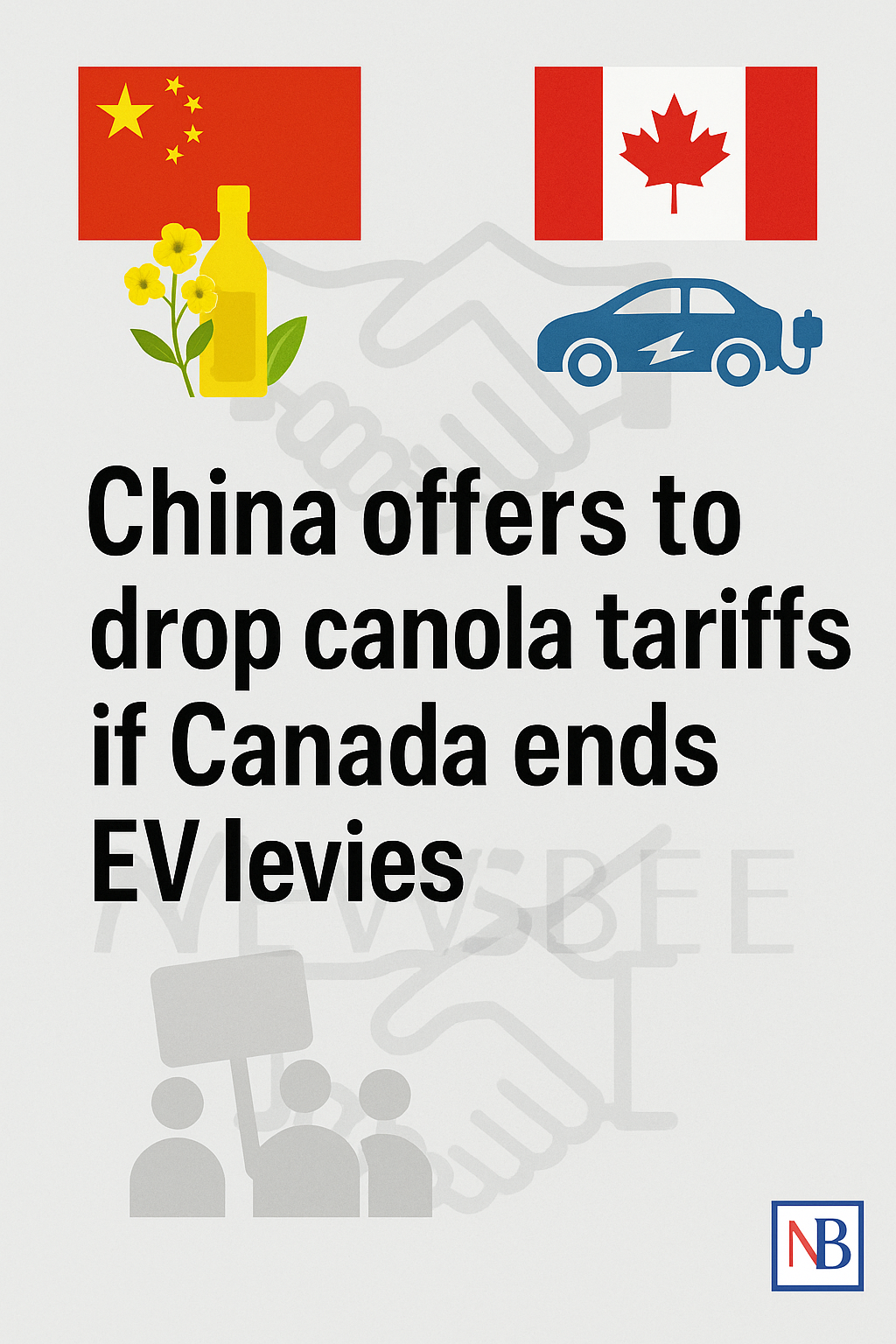Ottawa/Beijing – China has signaled its willingness to remove tariffs on Canadian canola imports if Ottawa agrees to scrap its new electric vehicle (EV) levies on Chinese-made cars, according to China’s ambassador to Canada. The proposal, which links two key trade disputes, highlights Beijing’s growing pressure on Canada amid escalating economic tensions between the two nations.
Speaking to reporters in Ottawa, the Chinese ambassador said that Beijing is “open to a mutually beneficial solution” but expects “reciprocity and fairness” in Canada’s trade policies. “If Canada removes its discriminatory EV tariffs, China will lift its restrictions on Canadian canola — it’s that simple,” the ambassador stated, adding that such a move would “restore balance and goodwill in bilateral trade relations.”
The remarks come after Canada imposed new import duties on Chinese electric vehicles, citing unfair trade practices and state subsidies that give Chinese automakers a competitive advantage in global markets. The tariffs, part of a broader North American strategy aligned with the United States, have drawn sharp criticism from Beijing.
China’s ban on Canadian canola, in place since 2019, has been a long-standing source of friction between the two countries. The restrictions — officially justified on “pest-related concerns” — were widely seen as politically motivated following the arrest of Huawei executive Meng Wanzhou in Vancouver. The ban has cost Canadian farmers billions in lost exports, forcing them to find alternative markets.
Canadian officials have not yet formally responded to the ambassador’s proposal but acknowledged that trade relations with China remain “complex and sensitive.” A spokesperson for Global Affairs Canada said Ottawa would continue to “defend Canada’s economic interests while supporting international rules-based trade.”
Analysts say China’s offer is a strategic maneuver designed to exploit divisions within Canada’s economic sectors — particularly between Western grain producers eager for market access and policymakers focused on protecting the emerging EV industry. “This is classic economic diplomacy,” said one trade expert. “China is leveraging its market access to test how far Canada is willing to go to protect its domestic manufacturing ambitions.”
The canola issue is especially critical for Prairie provinces, where farmers have long urged the federal government to restore access to China, Canada’s largest pre-ban buyer. The prospect of renewed exports could reignite pressure on Ottawa to soften its stance.
However, Canadian officials have emphasized that EV tariffs were introduced to protect domestic industry and align with Western allies, particularly amid growing scrutiny of China’s trade practices. “Any adjustments will depend on China’s behavior across multiple fronts, not just agriculture,” one senior official noted.
With both sides signaling interest in negotiation but holding firm to their demands, the standoff underscores the fragile balance in Canada–China trade relations — where political considerations often outweigh economic logic. For now, farmers and automakers alike are watching closely to see whether diplomacy can bridge the divide.

